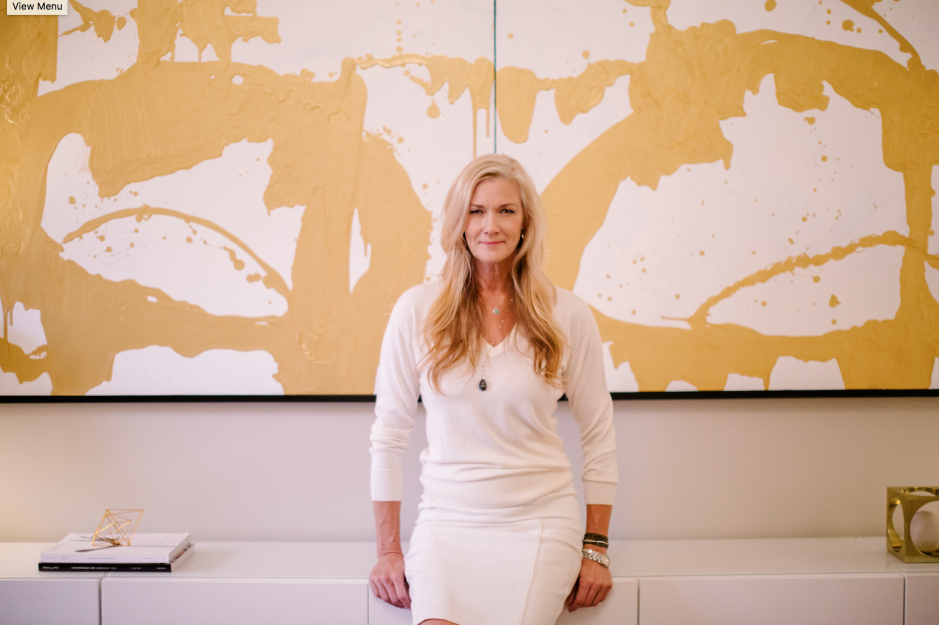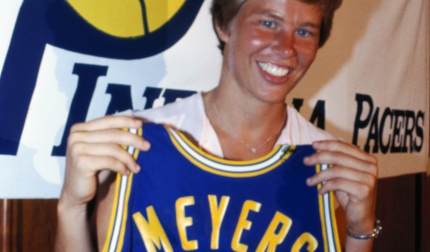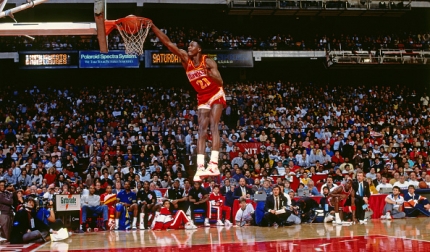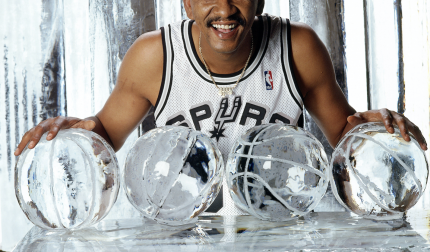As a water skier, Camille Duvall was a five-time World Champion, a Water Ski Hall of Famer and named as one of the 100 Greatest Female Athletes of the Century by Sports Illustrated. As a successful real estate executive, she’s building a new legacy.
You’ve had an amazing career as an athlete and an amazing career since you’ve been an athlete. How did you make the transition of out of your sport?
Toward the end of my career I was already working in television, doing some color commentating on my own sport. ABC was working with us, and they asked if I would mind doing a few interviews on the sideline. They were my friends, so it was pretty easy to do, and it was my own sport. Then ESPN tapped me to cover the first X Games – which was really fun. When I retired from waterskiing, I naturally moved into a television commentating career. I worked with the WNBA as a halftime reporter. I’ve been a sideline reporter. I worked for ESPN on Center Ice for NHL. So I did a lot of different things. And then I did the thing that I loved the best, which was a travel sports show for ESPN called Men’s Journal. We’d go to exotic locations and do all kinds of different sports—the idea being that anybody could jump off their couch and do these kinds of things. We traveled all over the world and had a lot of great experiences.
How did you decide when it was time to retire from water skiing?
That got decided for me. I really thought at 33 years old, that was going to be my last year to ski, so I trained really hard over the winter. Normally I would have taken that time off, but I said to myself, “I want to break every world record this year, and I want to go out on top with nothing left to do.” Our ski season started in March at the Moomba Masters in Australia. And in January, I was on world record pace. In practice, I was breaking the world record regularly in slalom and in jumps, so I thought this was going to be a great year. So, I was training really hard, everything was going great guns. I’m waiting for the plane to go to Moomba, and all of a sudden, everything was like a Picasso painting. I couldn’t see parts of people’s faces or parts of the background. I thought I was having a stroke. I called a friend of mine, who’s a neurologist. They found that I have a collapsed vertebral artery in the back of my neck. You have two carotid and two vertebral arteries in the back of your neck, and one of those was gone. So if you twist your neck a certain way, you’re losing oxygen to your brain. They don’t know exactly what caused it, but any water skier can tell you that whiplash is a part of your day-to-day life.
What was the most difficult thing about retiring from skiing?
For me, it was the suddenness of it. I had it in my head that I was going to be able to ski the whole next year and have a victory tour. I wasn’t able to finish on my own terms. The worst part was that it wasn’t like I broke my leg, and it was horrible, and I felt bad. I felt great except for occasionally when this thing happened. I didn’t know what to do with myself, because as an athlete, your entire schedule is planned out. Your life revolves around what you’re supposed to eat, when you’re supposed to eat, your training, your weight lifting, your massage, whatever it is. And suddenly there’s no schedule any more. And I really didn’t know what to do with myself. That was the hardest part. Still to this day, I can’t drive by a beautiful flat piece of water and think about how great it would be to ski on it.

Photo by Tom King
So how did your broadcasting career progress after retiring from your sport?
I was continuing down the broadcasting road, and then 9/11 happened. I had two small children at the time, and I didn’t want to travel for work anymore. I couldn’t quite figure out what I wanted to do. I was putting in my resume in for local sports casting jobs, but I’m not sure that I really saw myself as the 6 o’clock news sports anchor in New York City. It didn't seem like the right fit for me. A friend of mine, who I play tennis with, is a big commercial real estate broker in New York City. And he said, “You’ve lived in NYC for a long time. You’ve raised your children here. You have a fair number of contacts here. Your mother is a real estate broker. Have you ever thought about real estate?” So I went and got my license. Then I met one of the owners of Terra Holdings, which included a couple of real estate firms including Halstead and Brown Harris Stevens. I was looking for a place to put my license and he said, “Why don’t you come to Terra Holdings? We’ll start you at Halstead because they have a great training program, and then we’ll move you to Brown Harris Stevens.” So I said, “Great!”
How tough was it to get started?
Starting in real estate after 9/11, talk about crickets! It was hard. It did give me a chance to get my training under my belt. But the January after 9/11, it was like the horses were let out of the gates. I think New Yorkers only have a small amount of patience for delayed gratification. Plus, people have to move—you get married, you get divorced, you have a baby. People need to move. It happens. It’s life. It was a slow start, but then it was a little bit of a tsunami after that.
Was there a specific turning point for you?
I wasn’t looking to change firms, but then I did a deal with Fred Peters, who is the President of Warburg Realty. It was a complicated deal that I’ll never forget: 710 Park Avenue. Fred and I worked very closely to get the deal across the finish line. And during this process, Fred kept saying that he wanted me to come work at Warburg. I thought he was just being nice. But when the deal was done, he said, “Let’s go to lunch.” And I did. I love Fred. He has an amazing intellect. He’s an incredible forward thinker and his integrity level is off the charts. And that’s not something you often see in this business. It was someone I want to model myself and my business after. I It was an easy decision once we got through the romance of the recruiting process.
How has your career evolved at Warburg?
I’ve loved being here. It’s been almost 15 years. Two years ago, he tapped me to come become the Sales Director and open our new Flatiron office, which I really enjoy doing. I’m probably a different kind of Sales Director than what you think of in New York City. Your first job is problem solver – for everything and everyone. It’s like having your own book of business, but times forty. I don’t broker the amount that I used to, but I think it’s important to keep your instincts sharp and to know what your agents are going through. You can’t do that if you’re sitting in your little glass box. I came here with 15 agents and I now have almost 40. The office has turned a profit the last couple of years, so I’ve been feeling pretty good about the way things are going. But it’s hard work!
Do you have any advice for athletes on how to find mentors?
If you’ve chosen a field you’d like to be in, read as much as you can. I’m a real industry reader. I read all the newspapers and trades. You can certainly see through your reading and research who you like and who’s doing the right things. You should think about someone who aligns with your own values. If you’re a high level professional athlete, you understand practice, preparation, and leaving no stone unturned. And that’s the way I prepare for real estate. When I prepare for a client, I go into training mode. I learn everything about 2-bedroom, 2.5-baths on the Lower East Side. So when I meet the client for the first time, they know that I know what I’m talking about. You leave less room for mistakes and you’ll be far more successful. Same way you are in sports. If you’re a runner and you don’t run every day, sorry, but when you come to the race, everyone’s going to pass you (laughs). It doesn’t matter what your business is. That rule is going to apply.
What advice would you give to an athlete who’s in the process of transitioning from their athletic career to something else?
A good thing to do would be to look among your friends and family and see who has an interesting career that you like. And then sit down and talk to them. I did that a lot with people from. From all different walks of life types of careers, and ask, “Can you spend 30-45 minutes talking to me about . . . real estate? And that’s a great way to get started. If something piques your interest, find someone in your circle of friends, or a friend of a friend, and have a conversation with them. Talk with the highest-up person you can find and see if what they’re doing is something that interests you. And then if it does, ask “Wwhat’s that first step? How do you get into that? And how long will it take you to get traction?” Those are questions that you have to ask when you’re having that conversation with someone.
Is there anything that replaces that feeling you got when you were skiing?
Real estate does some of that. It’s a very competitive field, especially in New York City. It’s a different kind of competition, more of a mental competition. But there’s still all of the preparation, just a different kind of preparation. And now that my children are out of the house, I have more time for myself, so I’ve been able to pick up a few sports that I like to do. I played the sports that my kids played when they were growing up. My daughter rode horses, so I rode. My son played hockey, so I played on the women’s team at Chelsea Piers. Now I have everything open and available to me, which is kind of cool. I’ve been doing a lot of running, which is a quick, easy thing and it keeps you in shape for everything else that you want to do. I’ve started cycling, road biking, which I love. And rock climbing, which I love. And then I’ve gone back to my water skiing roots, which I’m really enjoying as well. I joined a little ski club just north of New York City and I’ve been coaching a little bit. It’s a joyful thing to watch people improve. You tell them two things and all of a sudden they’re running their personal best. It’s great.

Photo by Vik M Photography
What would you say about your athletic career helped prepare you for your current career in real estate?
You’re going to fail. And sometimes it’s spectacularly failing. But it’s not how you fail,; it’s how you start again. And that’s what’s truly important about what you learn from the failing. You hope that it doesn’t happen, but sometimes things don’t go right. So what do you learn from that, and what are you going to do to prevent that from happening again? You’re not always going to win, even though you’d like to, even though you’ve prepared perfectly. The same thing can happen in business. You need to be prepared, to pick yourself back up and get going again. You need to be your own driver.
Any other advice for athletes in transition?
You want to use the ideals that you take from sports, whether it’s sportsmanship, fair play, or integrity, and put those into your business. Your persona and your word is your bond. Especially in my particular business, where I’m not sure that people think about real estate brokers with great affection (laughs). In this business, people are much more professional now; it’s not little old ladies in fur coats opening doors anymore. If you come at it from a perspective – here’s all the angles, here’s the dollars, here’s why it makes sense, here’s why it doesn’t make sense—people can respect that. They know that you have been the architect of your own career and the architect of their deal.
You mentioned that you had children while you were still competing, which is pretty incredible. How did being a mother influence your career as an athlete and in real estate?
They’re the great joys of my life. Both of them, Alexander and Gabby. I found out I was pregnant with Alexander while I was on the pro tour. So he likes to say that he competed on the pro tour, which he did. It’s kind of a funny story. I was in London and I was doing pre-press there. I was getting in a car every morning for the driver to take me somewhere, and I’d just be vomiting on the side of the road. I had morning sickness and I didn’t know it. The driver said to me, “You know miss, I don’t mean to pry, but I’ve been driving you for the past week, and I have 10 children. Is there any chance you could be pregnant? Would you like to go to the chemist?” And I thought, "Maybe!” I called my doctor and said, “I took a test and found out I’m pregnant, what should I do?” So she said I should just do what I was doing every day, and she’d see me when I got home. So at the time, ESPN was covering the tour. My doctor was watching and she saw me flinging myself off of a jump. She knew my mother and called her. She said, “I didn’t tell her she could jump!” But that’s what I was doing every day (laughs). You have to be more specific when you’re talking to an athlete. And Gabby, same thing. I was training for a triathlon after I retired from skiing. I was really tired and I couldn't figure out why. I went to the doctor and I was five months pregnant.
Did they follow in your athlete footsteps?
Both of them are very sporty. Gabby has always been a top level equestrian. She started at the Gallatin School at NYU. She’s a professional show jumper for horses. And the time for her in sport is now. She has a very good job working with a trainer in Connecticut and is buying and selling and trading horses and is living her dream right now. My son played all kinds of sports—tennis, he was a 4-year starter in baseball, league leader in stolen bases at Amherst College. He did very well. He unfortunately passed away at Thanksgiving two years ago. He was a really joyful kid in sports and in everything. He encouraged all of his friends in sports. A couple of guys that he went to prep school with – they had the chance to play in the minor leagues or go to college, and he encouraged them to take the opportunity to play while they could. I’ve tried to take that joy that he had for sports and put it within me in everything that I do. And I that’s how I keep him within me.





